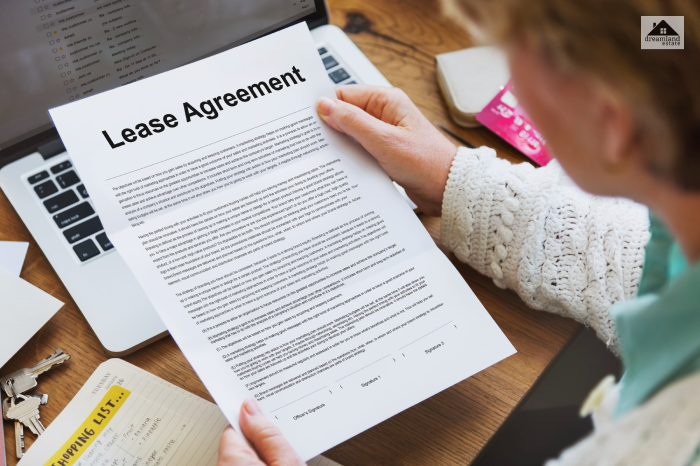All You Need To Know About Lessee And Its Various Aspects

A lessee refers to a person who usually rents a property, land, or house from a lessor. One might also address a lessee as a tenant who should uphold precise obligations as per the law and lease agreement. Moreover, the lease is a document- bonded by the law- and might evict the renter if they violate the terms.
Both the involved parties enter into an agreement or a “lease” that binds them to adhere to the legal clauses. The difference between ownership and leasing enables the lessee to enjoy all the tenant’s rights against periodic payments.
In this comprehensive guide, we will discover the various aspects of a lease agreement.
Comprehending Who Are Lessees

Lessees who mostly pay rent for land might be asked to adhere to some guidelines and restrictions while using the real estate. The property can also be a leased vehicle, and the renter has to maintain its usage under specific mileage limits. Failing to do so, the lessee has to compensate in monetary terms if he exceeds the mentioned mileage cap.
A leased automobile should be maintained by the renter with scheduled services as well as upkeep all through the agreement term. It is necessary to address all these conditions, as the vehicle has to be returned to the car dealer once the lease ends. But have you thought about what happens next?
The automobile is further taken to the market, where it has been put on auction. It might be a possibility for the lessee to seek complete ownership of the property. For this purpose, he/she has to consult the dealer first.
What’s A Lease Agreement And What Does It Consist Of?

In common terms, a lease agreement refers to documentation between two parties- lessee and lessor. Here, the lessor allows the renter all the rights of using a property. The lessor might manage the property for a specific period of time in lieu of monthly payments of “rent.” However, the agreement offers no ownership rights to the renter.
The only permission the lessee receives from the lessor is changing or modifying the property without sabotaging the previous designs. Further, he/she is also responsible for the property condition once the lease duration ends. From vehicles to properties and household appliances- everything is included in a lease agreement.
A lease document might consist of the following contents:
- Names and descriptions of both the lessee and lessor and agents
- A brief narration of the property
- Due dates, rent amount, late charges, deductions and grace period
- Method of paying rent
- Steps to terminate the deal before it expires or any additional charge is added
- Security deposit amount and the account in which it will be collected
- Facilities offered within the premises, entitled to the renter, like swimming pool, security systems, gym, etc
- Availability of parking
- Rules and regulations associated with pets, noises, and violation penalties
The Rights Of A Lessee
An individual who is basically a tenant for a residential or commercial real estate might experience a plethora of restrictions. A commercial agreement granted some rights for remodeling the property and better adjusting it to the use of the business space. This might include wall repainting and combining signage related to the brand reputation.
Installing equipment that is used in the course of business might also be included here. Furthermore, a commercial leasing agreement also specifies whether the property should be returned to its actual state once the tenancy comes to a close.
On the other hand, a residential lessee might have limited choices for repainting the walls of the space. However, they must be permitted to combine temporary decorations that cause no harm to the property’s initial condition. When it comes to the rights of a lessee or a renter, the following inclusions are made:
- The right to tenant’s privacy.
- The authority of basic habitability standards like electricity, water supply, and utilities.
- The third right is the right to a living space that is compliant with the local construction codes.
The Rights Of A Lessor
The responsibility of a lessor involves complying with safety and health laws or working towards necessary repairs. It might also include returning a fair deposit in exchange for the tenant’s deposit at the time of the lease termination. They might also have to offer prior notice to the lessee when they want the unit urgently.
A lessor is usually provided with the following rights:
- The right to interview potential renters.
- They have all the authorities to know the occupants of the leased property and approve them.
- The right to dedicate a part or full of the lessee’s security deposit to repair the damage caused by the renter himself.
Lessor Vs Tenant: How Are The Two Different?
Both the lessor and the tenant form the key participants in the entire leasing journey- whether it is a commercial or residential property. A lessor is the owner of the property, whereas the lessee is he who acquires the property under a legal binding. However, the former transfers all his rights of assets to another individual for a specific period of time.
The landlord might ask the renter for a certain security deposit and agree to receive the payment in the form of installations. Contradictorily, the lessee might use an equipment or asset for a period without paying too much money for it. Rather, they can divide the overall rent into equal proportions if there is more than a single renter.
At the time of the lease, the occupant ought to maintain the leased property. This will ensure that the asset prevails in a sound condition while returning it to the lessors. In addition, it is important for the leaseholder to take care of any damages or issues associated with the asset during the lease period.
Wrapping Up… Are You A Lessor Or A Lessee?
Home, property, or asset owning is all about ethics. So, it really doesn’t matter whether you are a lessee or a lessor. In both cases, it is your moral duty to keep the property maintained and in good condition for the next person’s ease of use.
With this, I bring my article to an end. But before wrapping up, my suggestion to my readers would be to consider everything that’s written above- before entering into any lease agreement. After all, a little extra knowledge never harms! Stay informed and keep leasing in the right direction.
Read Also:










